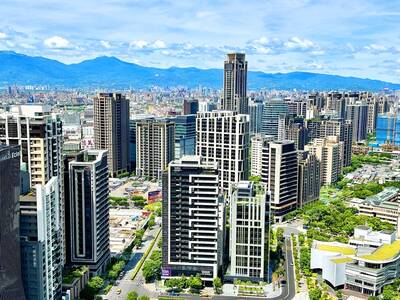Argentina’s embattled central bank chief, Martin Redrado, resigned on Friday amid a row with Argentine President Cristina Kirchner over her bid to use reserves to pay down government debt.
“I feel that my term at the head of the Central Bank has concluded and I have decided definitively to leave the office of president of the Central Bank, satisfied with the duties I have performed,” Redrado told reporters.
Redrado clashed with Kirchner as she sought to set aside US$6.5 billion in central bank foreign currency reserves to pay government bonds maturing this year, a move she described as necessary to shore up Argentina’s standing in international markets.
Redrado had said paying down the debt from Argentina’s reserves could lead creditors who lost money during the country’s massive 2001 loan default laying claim to the reserves.
He harshly criticized the government on Friday, accusing Kirchner of “permanently trampling institutions” and trying to use “the savings of all Argentines.”
The dispute between the pair had verged on a full-blown crisis, after the Argentine leader issued a decree firing Redrado.
He refused to leave and a federal court blocked his dismissal Jan. 7, saying Kirchner had failed to obtain congressional approval.
For its part, the government shrugged off Redrado’s announcement, insisting that a sacked employee has no post from which to resign.
“For us, there is no resignation,” said Cabinet chief Anibal Fernandez, who stressed that a new decree will finalize Redrado’s sacking.
Redrado’s departure came as a three-member bicameral congressional commission was to determine whether he acted properly and advise Kirchner of its findings, although she was not obligated to follow its recommendations.
He had initially refused to testify before the panel unless Kirchner revoked her order removing him from office, but reversed that position and hinted he might resign after addressing the committee.
Argentina has struggled to shake off pariah status in world financial markets following a 2001 default, but Redrado’s opposition to using reserves to pay off maturing debt received support from counterparts around the world, including European Central Bank President Jean-Claude Trichet.

The seizure of one of the largest known mercury shipments in history, moving from mines in Mexico to illegal Amazon gold mining zones, exposes the wide use of the toxic metal in the rainforest, according to authorities. Peru’s customs agency, SUNAT, found 4 tonnes of illegal mercury in Lima’s port district of Callao, according to a report by the non-profit Environmental Investigations Agency (EIA). “This SUNAT intervention has prevented this chemical from having a serious impact on people’s health and the environment, as can be seen in several areas of the country devastated by the illegal use of mercury and illicit activities,”

NEW PRODUCTS: MediaTek plans to roll out new products this quarter, including a flagship mobile phone chip and a GB10 chip that it is codeveloping with Nvidia Corp MediaTek Inc (聯發科) yesterday projected that revenue this quarter would dip by 7 to 13 percent to between NT$130.1 billion and NT$140 billion (US$4.38 billion and US$4.71 billion), compared with NT$150.37 billion last quarter, which it attributed to subdued front-loading demand and unfavorable foreign exchange rates. The Hsinchu-based chip designer said that the forecast factored in the negative effects of an estimated 6 percent appreciation of the New Taiwan dollar against the greenback. “As some demand has been pulled into the first half of the year and resulted in a different quarterly pattern, we expect the third quarter revenue to decline sequentially,”

DIVERSIFYING: Taiwanese investors are reassessing their preference for US dollar assets and moving toward Europe amid a global shift away from the greenback Taiwanese investors are reassessing their long-held preference for US-dollar assets, shifting their bets to Europe in the latest move by global investors away from the greenback. Taiwanese funds holding European assets have seen an influx of investments recently, pushing their combined value to NT$13.7 billion (US$461 million) as of the end of last month, the highest since 2019, according to data compiled by Bloomberg. Over the first half of this year, Taiwanese investors have also poured NT$14.1 billion into Europe-focused funds based overseas, bringing total assets up to NT$134.8 billion, according to data from the Securities Investment Trust and Consulting Association (SITCA),

Taiwan’s property transactions in the first half of this year fell 26.4 percent year-on-year to about 130,000 units, as credit controls and mortgage restrictions dampened demand, data from the Ministry of the Interior showed yesterday. Keelung saw the steepest decline, with transactions plummeting 45.6 percent to just 2,041 units — the lowest since the ministry began its survey in 2006. In contrast, Miaoli County was the only region to experience year-on-year growth, with transactions rising 2.4 percent to 3,229 units. Great Home Realty Co (大家房屋) attributed the increase in deals in Miaoli, particularly Jhunan (竹南) and Toufen (頭份) townships, to spillover demand